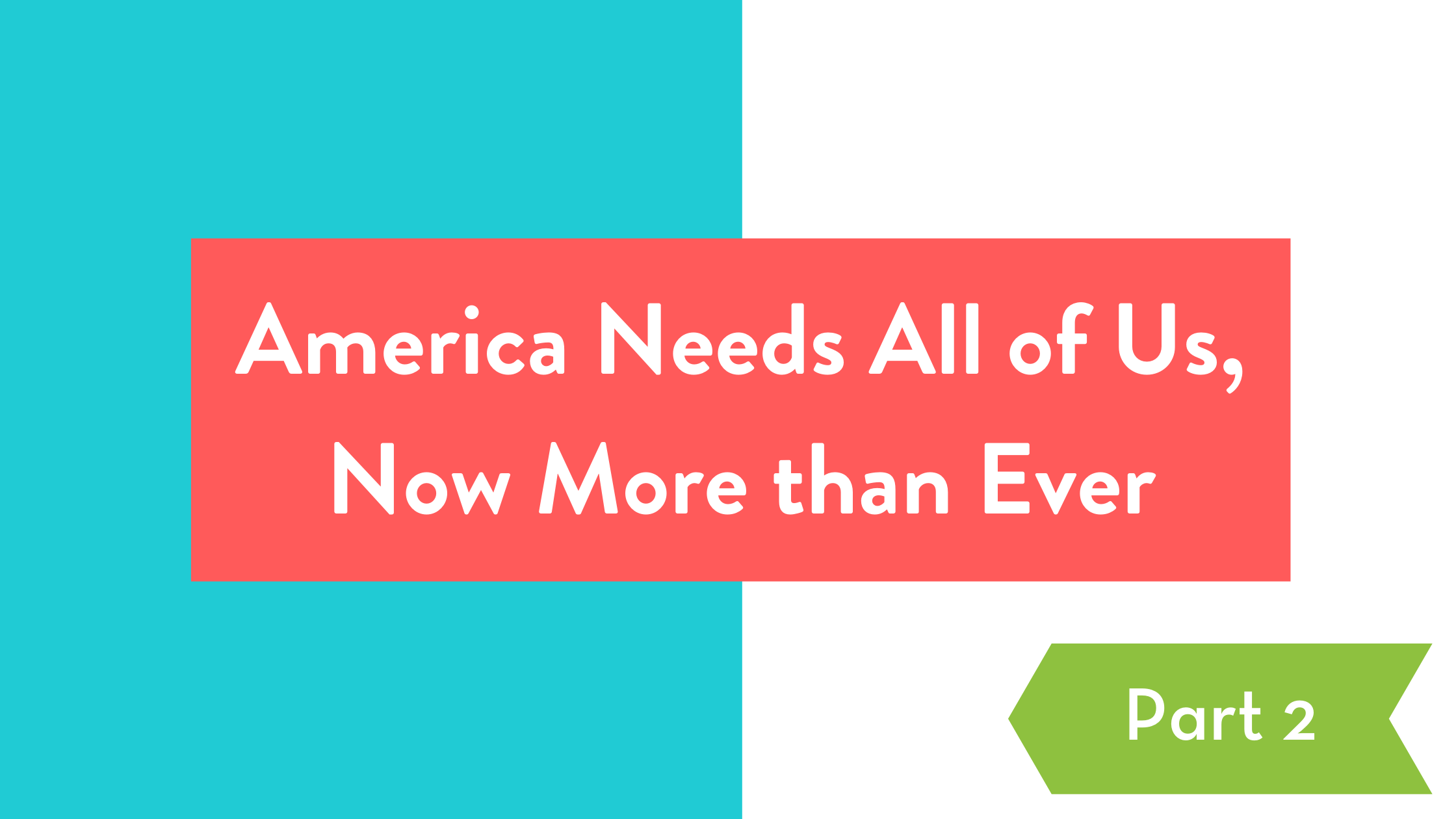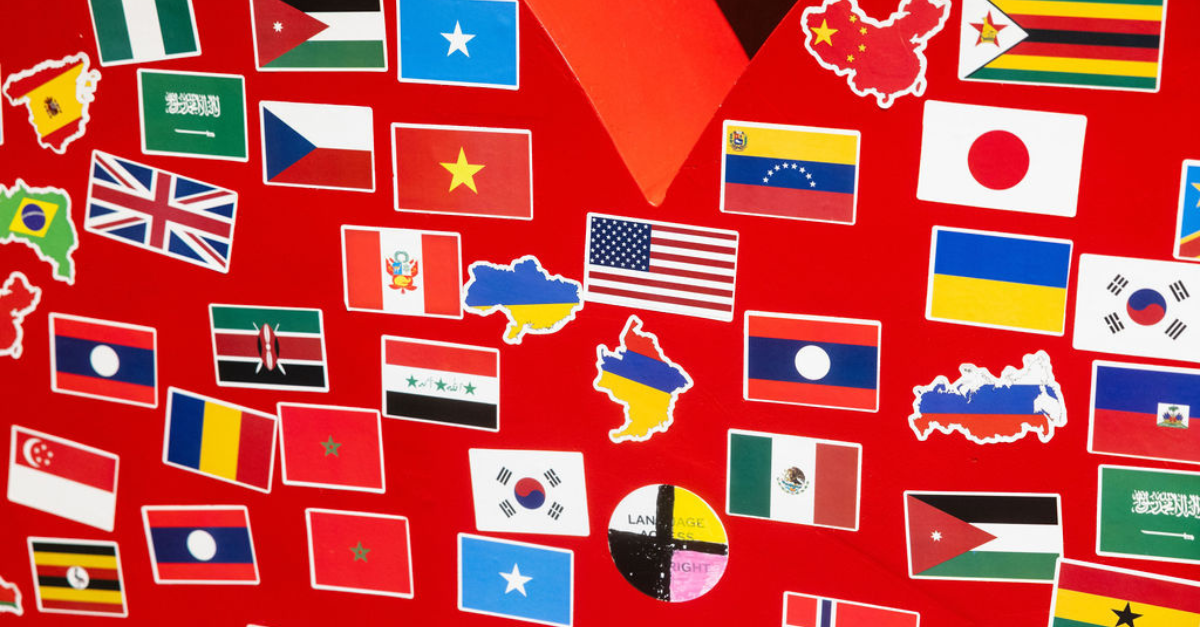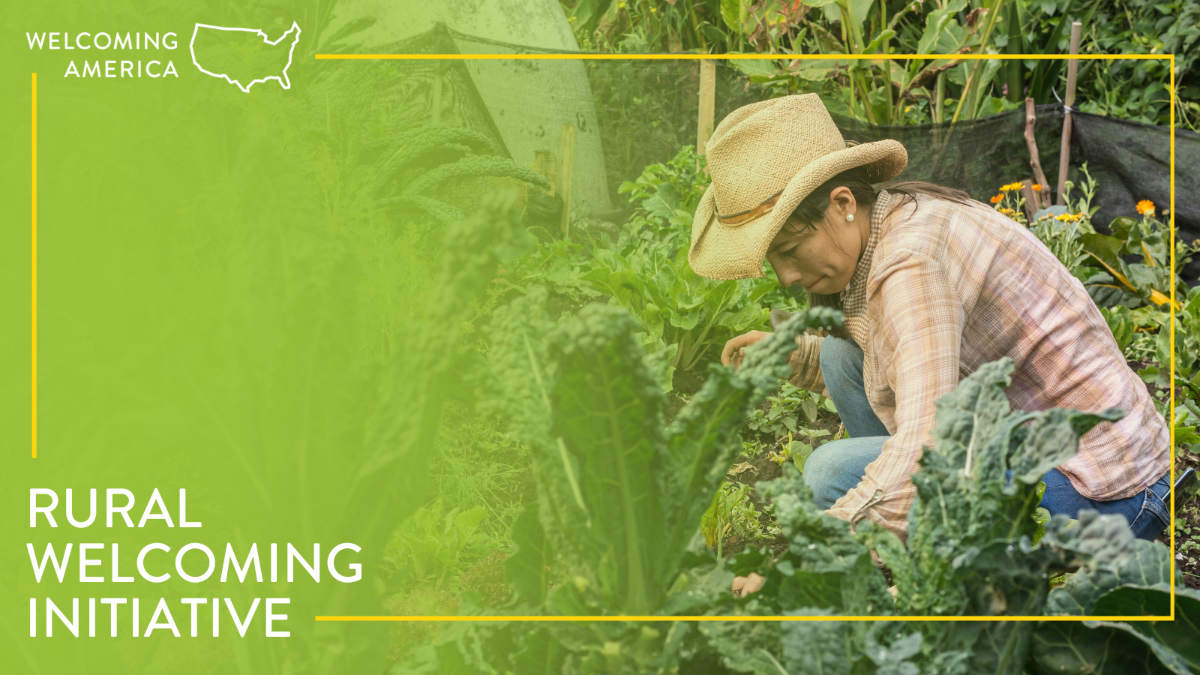
America Needs All of Us, Now More Than Ever: Part 2
America Needs All of Us, Now More Than Ever is a three-part blog series to highlight excerpts of the America Needs All of Us toolkit created by Welcoming America in 2015 to provide practical messaging tools and strategies that address people’s fears, anxieties, and prejudices head on about immigration and demographic changes in America. While the initial focus of this toolkit was on racial equity through an immigration lens, we believe its key messages on unconscious bias, overcoming fear, and racial justice in inclusion work remain more relevant than ever. Click here to read part one.
America Needs All Of Us Part 2: Drawing the Right Message for the Right Audience at the Right Time:
Finding the right message for the right audience at the right time is critically important. The following frames and messages have been adapted and refined from a set of messages based on research conducted by Drew Westen, Ph.D. with Westen Strategies for the Four Freedoms Fund that have been extensively researched and tested through audience polling.
Two of the messages provide language to talk to your audience about the benefits and value of ethnic and racial diversity. The other two messages provide ways to talk to people about unconscious bias. We have also provided examples or scenarios where these messages might be most appropriate or effective in the full PDF document. (Note: while some of these messages are focused on fears surrounding demographic changes due to immigrants and refugees, they can be edited or adapted based on the context.)
1. Uncovering Unconcious Bias.
Top-line Message: We can start by recognizing our unconscious bias.
We’re used to thinking of prejudice as something you either have or you don’t. But despite our best attempts to rid ourselves of prejudices and stereotypes, we all have them. For example, it’s not easy for a hard working 55-year-old white guy or a hard working young Black or Latino kid to get a job. They walk into a room and a stereotype about their age, race, or ethnicity walks in with them. Hopefully, one day prejudice and stereotypes won’t be a factor when it comes to who gets the job. We are not there yet. But we can start by recognizing that as humans, we all have unconscious stereotypes and that we can do something about them.
2. We Can Do Better.
Top-line Message: By being conscious of our biases, we can limit their effects on how we treat people.
As Americans we believe in treating everybody fairly regardless of what they look like or where their ancestors are from. But what we believe consciously and what we feel and do unconsciously can be two very different things.
One study showed how strong these unconscious biases can be, even when they contradict our stated values. When college students were asked to evaluate Black and white job applicants who had really strong or really weak resumes, race didn’t matter. They picked the best candidates. But when the applicants’ credentials were somewhere in the middle, in that grey zone, white applicants tended to get the job.
We may not be able to eliminate our unconscious stereotypes and prejudices, but we can recognize them and take steps to limit their effects. We can do better if we recognize them, talk openly about them, and decide to treat people equally regardless of their skin color.
3. Different Pasts, One Future.
Top-line Message: We should focus on what unites us—our shared hopes for our families and country—not our different pasts.
In this country we believe each person should have an equal opportunity to make it if they work hard. That should be true regardless of the color of your skin or where your ancestors were from. Because no matter who our ancestors were, they all wanted the freedom to speak, to pray, and to raise their children with hope. We may not all share the same history, but we share one future as a country.
We need to stop thinking in terms of us versus them and start thinking in terms of just us: Americans united by the bonds of shared freedom and equality. If we can do that, there’s nothing we can’t do together.
4. America Needs All of Us.
Top-line Message: America is stronger when we all have an opportunity to contribute.
You look at fire departments in many major cities, and you’ll see what America is increasingly looking like in the 21st century: Black, white, Latinx, and Asian working together. When you are fighting a blazing fire, you trust that your brother or sister has your back.
You are not thinking about the color of their skin or where they are from. You are focused on one thing—protecting lives. What binds together a diverse fire department is what it takes to bind together a diverse society—shared values and goals.
But that doesn’t mean asking people to give up what they value about their heritage. Our cultures and heritage make each of us unique. Those things don’t take away from who we are as Americans. They add to it. By giving each person an equal opportunity to contribute, it makes the entire team stronger. It makes America stronger.
To read more of America Needs All Of Us, download the PDF here.



